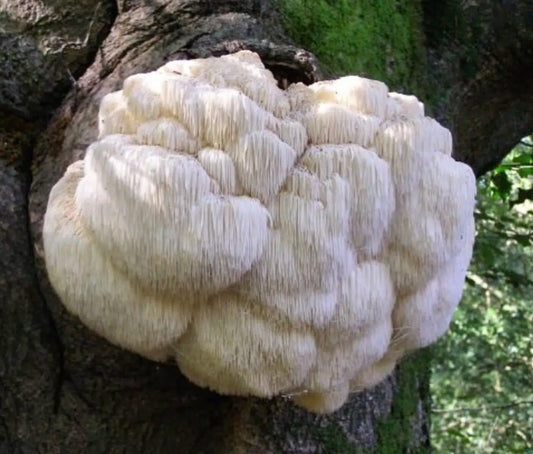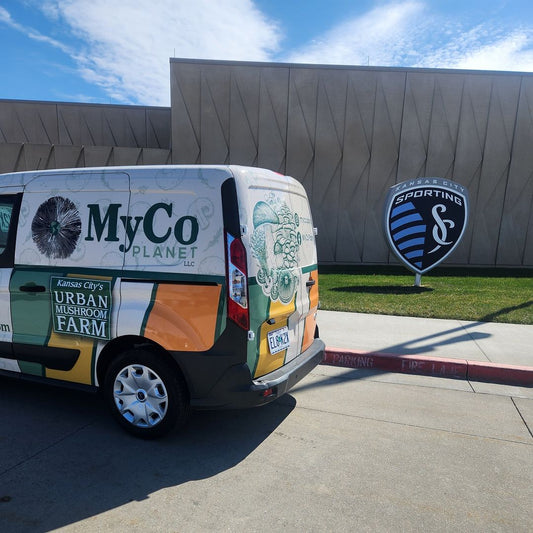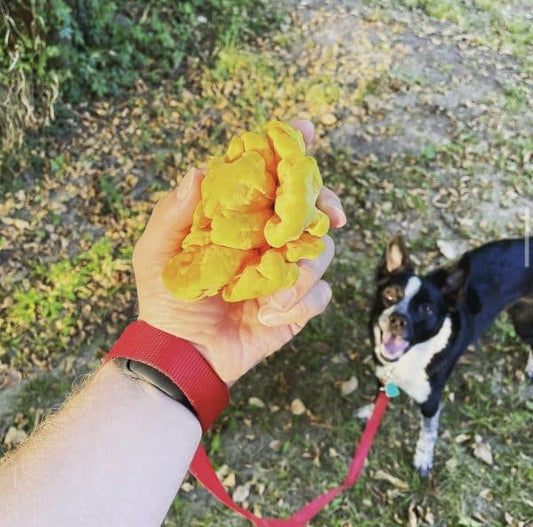When using mushroom blocks in your compost pile, simply place them on top of the material you wish to compost. The blocks will help break down the compost faster, allowing you to reap the rewards of nutrient-rich soil in a much shorter time period.
Additionally, mushroom blocks can be used as mulch or soil amendment for existing plants and gardens. They provide an additional layer of nutrients that can help your plants grow strong and healthy. With the added bonus of helping the environment by reducing waste, composting with mushroom blocks is a great choice for any home gardener.
What Is The Process of Composting With Mushroom Blocks?
The process of composting with mushroom blocks is relatively simple. First, you need to soak your mushroom block in water for several hours or overnight to activate the composting process. Once the block is fully saturated, you can add it to a compost pile or bin filled with other organic materials such as leaves and grass clippings.
You should then cover the pile with a tarp to keep the moisture in and prevent any pests from entering the pile. After a few weeks, your compost will be ready for use. You can then use it as fertilizer or spread it on your garden beds to enhance the soil’s fertility.
What Is A Used Mushroom Block?

Mushroom blocks can be used to produce compost quickly. A used mushroom block is made from wood residues, sawdust, agricultural waste materials such as straw, and other organic matter. These materials were used to grow specific types of fungi. After the mushroom substrate has been spent, it is best placed on the compost pile. The fungi will further break down the organic material and turn it into compost.
The finished compost is rich in nutrients, making it ideal for gardens and farms. In addition to being an excellent fertilizer, mushroom block composting also produces fungi that can be harvested and used as food or medicine. Mushroom blocks are easy to produce and require very little maintenance, making them an excellent form of sustainable waste management. With careful monitoring, these blocks can produce a steady supply of useful compost for years to come.
What Does Composting With Mushroom Block
Do For The Soil?
Mushroom blocks are an excellent way to add nutrients to your soil while also reducing food waste. As an added bonus, mushroom blocks are easy to store and can last for up to a year if kept in a cool, dry place. Additionally, using mushroom blocks as compost is much more efficient than traditional methods since the decomposition process happens faster. If you’re looking for an eco-friendly way to fertilize your garden or yard, consider using mushroom blocks for your composting needs.
Using compost mushroom blocks helps improve soil moisture and the ability to retain water while breaking down clay. Since the role of fungi is to break down dead and decaying matter, compost mushroom blocks added to an existing compost pile decompose the pile faster.
What Are The Benefits of Composting
With Mushroom Blocks?
 Composting with mushroom blocks offers several benefits over traditional composting methods. First, used mushroom blocks produce finished compost in a much shorter period of time. This means you can get valuable nutrients into your garden quickly, without waiting months for the compost to finish breaking down. Mushroom blocks are also much more efficient at breaking down organic materials than traditional methods, producing higher quantities of usable compost.
Composting with mushroom blocks offers several benefits over traditional composting methods. First, used mushroom blocks produce finished compost in a much shorter period of time. This means you can get valuable nutrients into your garden quickly, without waiting months for the compost to finish breaking down. Mushroom blocks are also much more efficient at breaking down organic materials than traditional methods, producing higher quantities of usable compost.
In addition to being fast and efficient, mushroom block composting is also a great way to reduce your carbon footprint. By creating compost right at home, you can avoid the energy and emissions associated with transporting compost from other sources. You’ll also be reducing the amount of waste that goes into landfills, making it an environmentally friendly form of composting.
Finally, mushroom block composting is a great way to recycle materials that would otherwise go to waste. This helps to reduce the need for new resources and makes this process even more sustainable.
What Are The Drawbacks To Composting
With Mushroom Blocks?
Used mushroom blocks are high in soluble salts and may be too strong to add directly to certain plants and germinating seeds. This is why used mushroom blocks should be used in conjunction with an existing compost pile and not overused, as they could burn certain plants.
How Does Composting With Mushroom Blocks Improve Soil pH?
Used mushroom blocks increase the pH of the compost pile and are excellent for gardens that have overly acidic soils. In this way, mushroom blocks can be used to increase soil pH to a level more conducive to plant growth.
How To Compost Mushroom Blocks?
The best way to compost mushroom blocks is to add them on top of an existing compost pile. However, used mushroom blocks can also be used as a top dressing over a garden to protect germinating seeds and seedlings, while breaking down and providing newly forming plants with nutrition.
Adding compost that includes mushroom blocks is best done in the spring, as the garden is just beginning to sprout up. This will reduce fertilizer requirements significantly. Typically, use around 5 kg of compost per square meter.
Another good time to add compost that includes mushroom blocks to the soil is in the fall after the garden has finished providing produce. This will add organic matter back into the soil before winter, providing a fresh, nutritious base for next year’s crop.
Compositing With Mushroom Blocks
If you are already growing your own mushrooms you can start composting with mushroom blocks immediately. If not, you can buy composted mushroom blocks from us to enhance your compost pile, and in turn, improve your garden.
If you want to start growing mushrooms, you can also buy mushroom grow kits from us.



